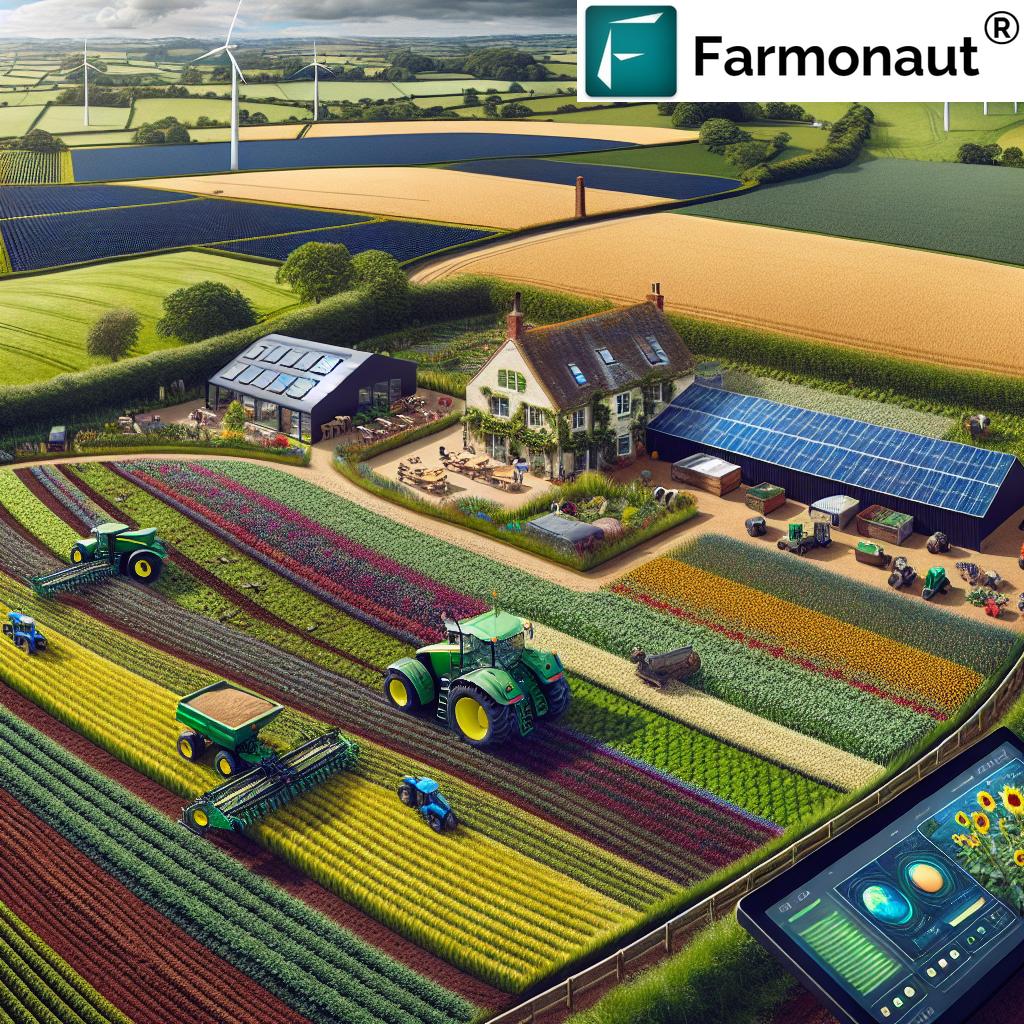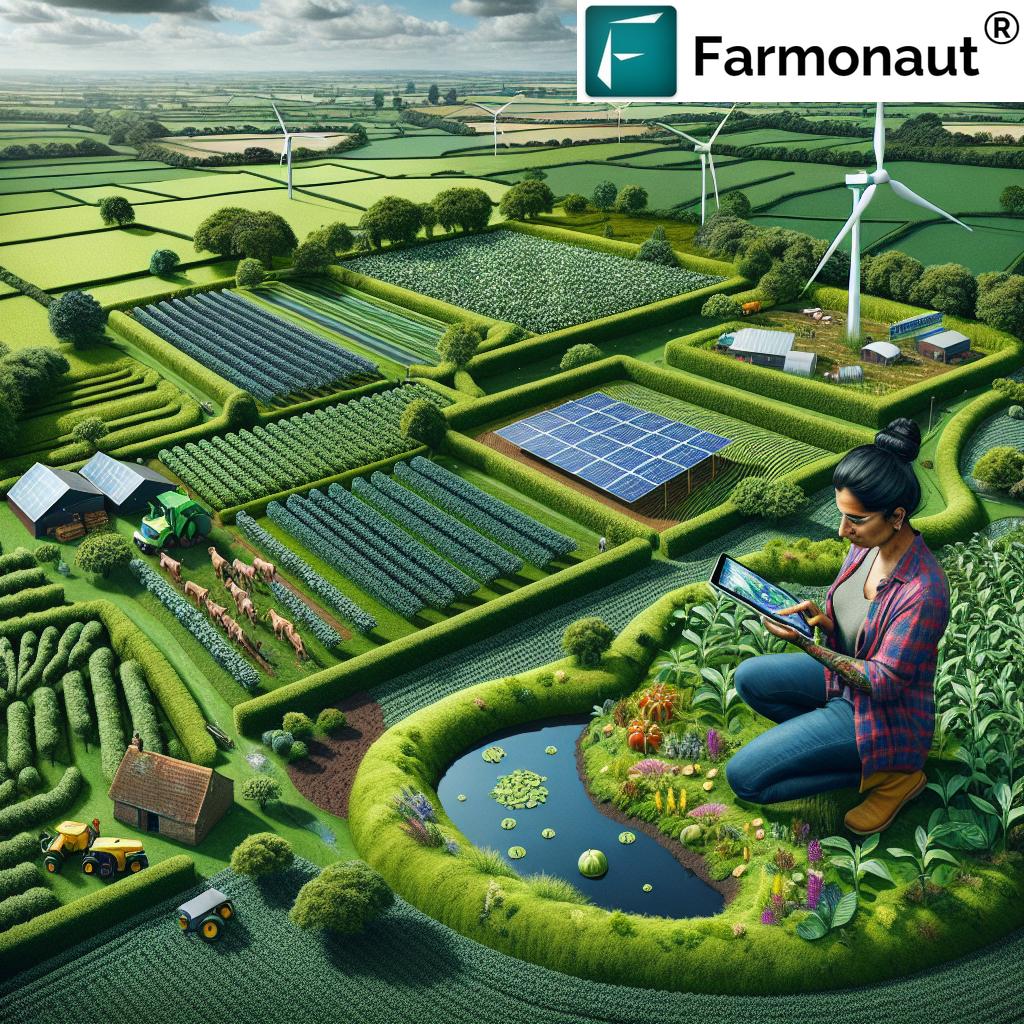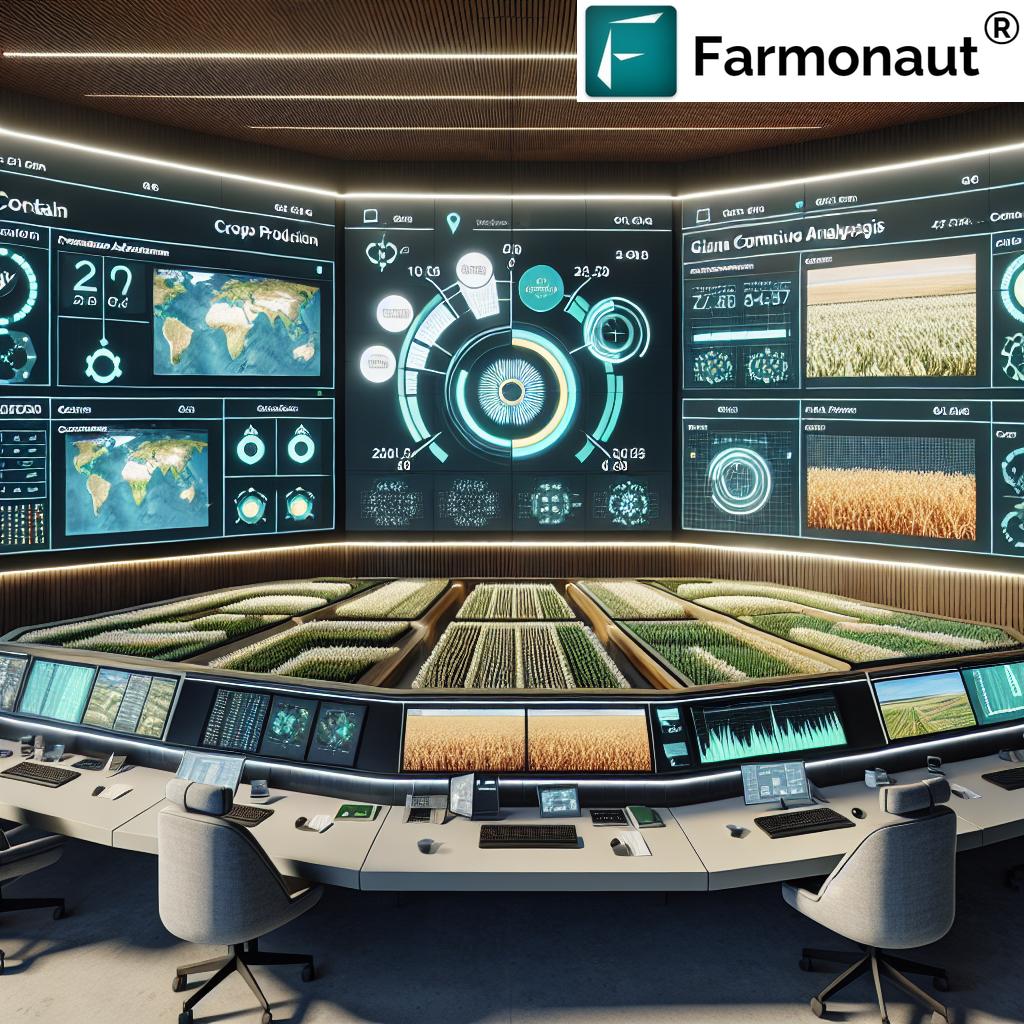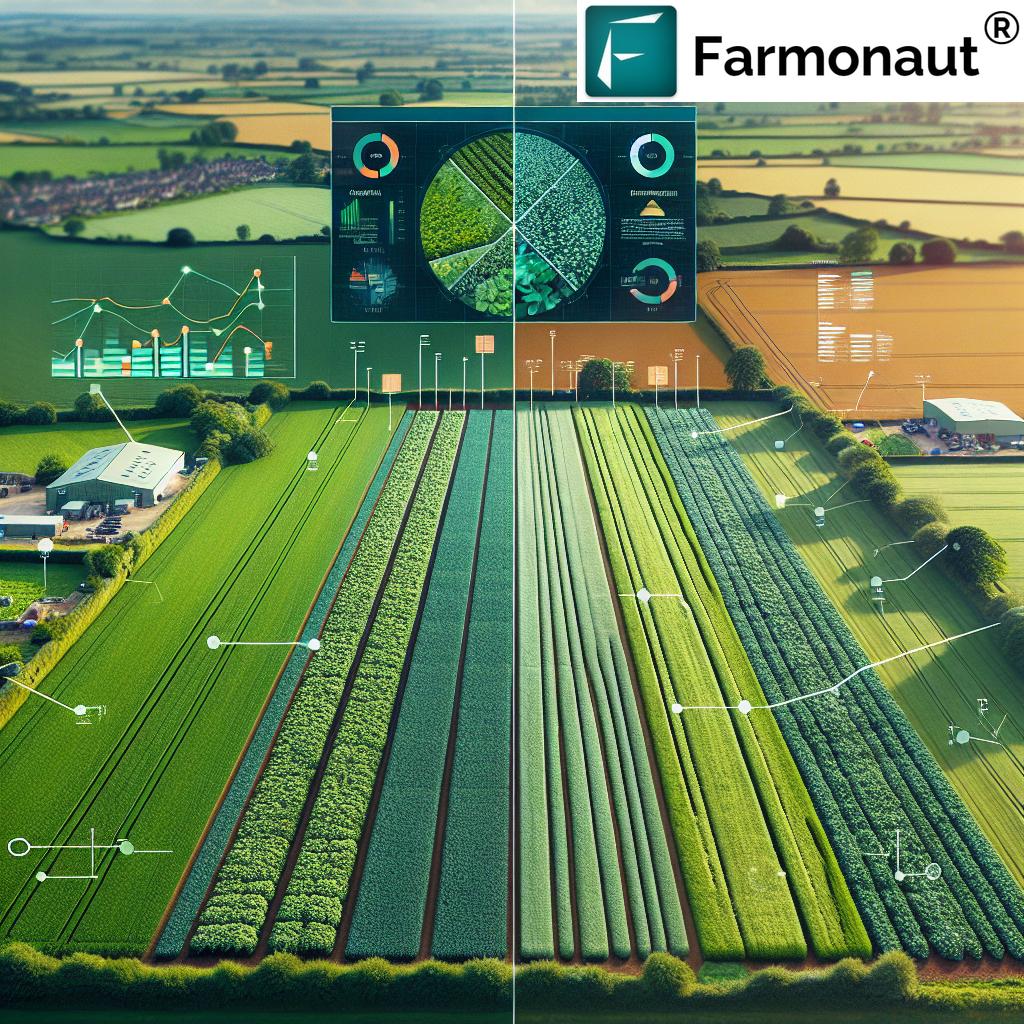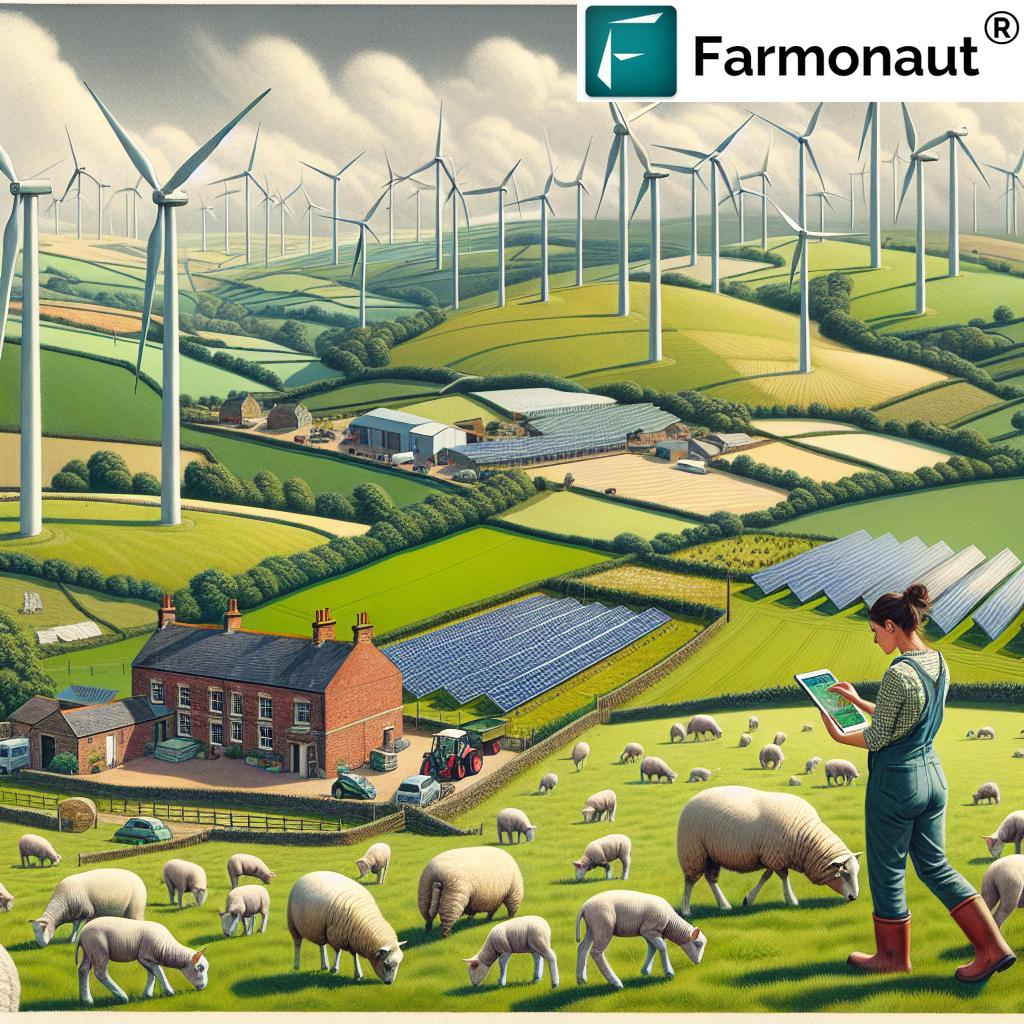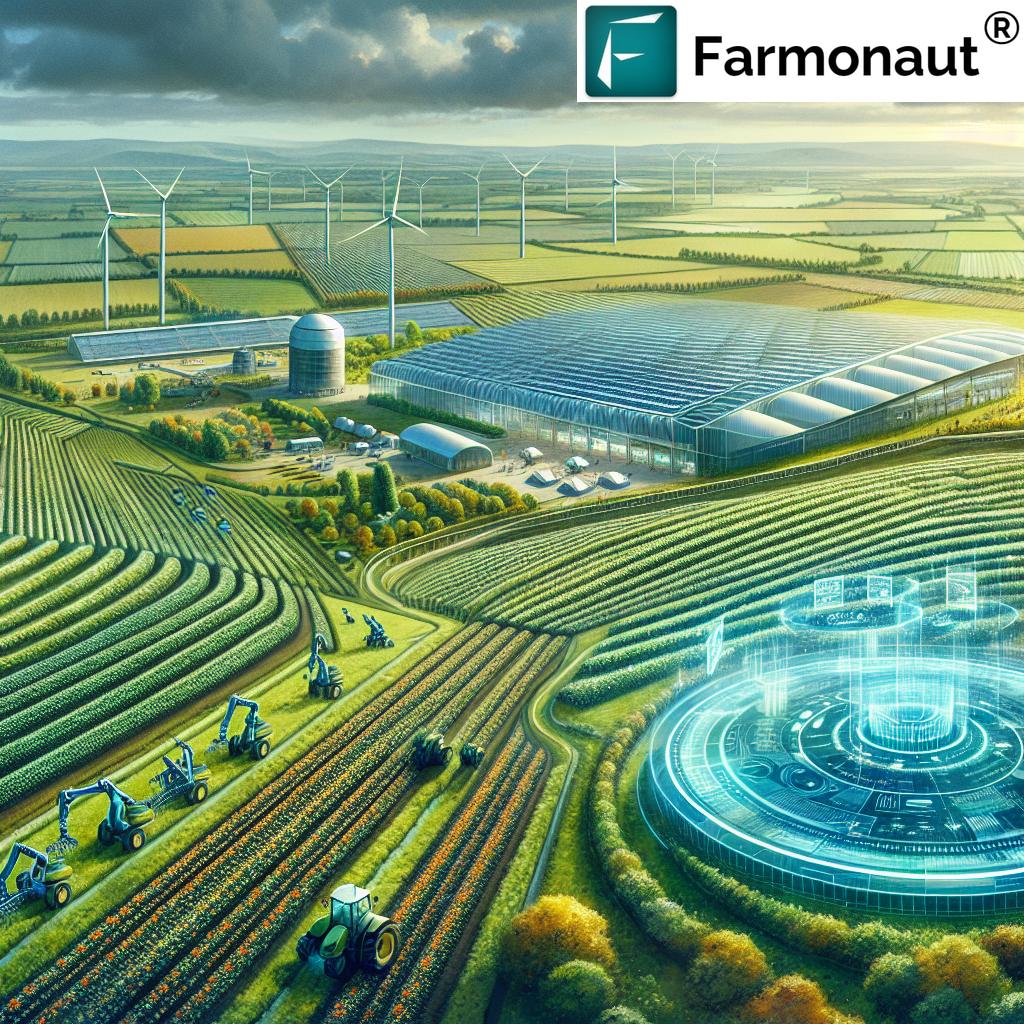Unlock London’s Investment Potential: Expert Analysis of Emerging Market Stocks and Smart Portfolio Management

“Satellite imagery analysis in precision agriculture can improve crop yield predictions by up to 30%.”
In the bustling heart of the financial world, London stands as a beacon of investment opportunities, particularly in emerging markets. As we delve into the intricacies of smart portfolio management and the potential of emerging market stocks, we’ll explore how innovative technologies are reshaping not just the investment landscape but also the agricultural sector. This comprehensive analysis will provide invaluable insights for investors, farmers, and technology enthusiasts alike.
City of London Investment Group Plc: A Case Study in Emerging Market Potential
To begin our exploration of London’s investment potential, let’s take a closer look at City of London Investment Group Plc (LON:CLIG), a company that exemplifies the dynamics of emerging market investments. Recently, CLIG experienced significant trading activity, with its stock crossing above the 50-day moving average. This technical indicator often signals potential upward momentum in a stock’s price.
- 50-day moving average: GBX 384.74 ($4.84)
- Peak price during trading: GBX 394.31 ($4.96)
- Closing price: GBX 385 ($4.84)
- Trading volume: 3,594 shares
These figures provide a snapshot of the stock’s performance, but to truly understand its potential, we need to delve deeper into the company’s fundamentals and the broader market context.
Technical Analysis and Market Metrics
When evaluating stocks, particularly those focused on emerging markets, it’s crucial to consider various technical indicators and market metrics. For City of London Investment Group, we observe the following:
- Market capitalization: Approximately £188.07 million
- Price-to-earnings (P/E) ratio: 1,480.77
- Beta: 0.47
- Current ratio: 3.86
- Quick ratio: 2.68
- Debt-to-equity ratio: 3.73
These metrics paint a complex picture. The high P/E ratio suggests that investors are willing to pay a premium for the stock, possibly due to expectations of future growth. However, this could also indicate that the stock is overvalued relative to its current earnings. The low beta implies lower volatility compared to the broader market, which might be attractive for risk-averse investors.
The company’s strong liquidity position, as evidenced by the current and quick ratios, is a positive sign. However, the high debt-to-equity ratio raises concerns about the company’s reliance on debt financing, which could be a risk factor in volatile emerging markets.
Investment Strategy and Market Focus
City of London Investment Group specializes in managing investment portfolios with a primary focus on emerging markets. Their strategy incorporates:
- Macroeconomic considerations
- Qualitative assessments
- Top-down analysis
This approach allows them to identify opportunities in small-cap companies across emerging markets globally. As investors, understanding this strategy is crucial for assessing the potential risks and rewards associated with the stock.
Analyst Perspectives and Market Sentiment
Despite the recent positive trading signals, City of London Investment Group is currently rated as a “Hold” by analysts. This cautious stance suggests that while the company shows promise, there may be better investment opportunities available in the market.
According to MarketBeat, which monitors top Wall Street analysts’ recommendations, there are at least five stocks considered more promising than City of London Investment Group. This insight underscores the importance of comprehensive market research and diversification in portfolio management.
The Intersection of Finance and Agriculture: A New Frontier

“Investment in agritech solutions has grown by 75% globally in the last 5 years, reshaping modern farming.”
As we shift our focus from traditional financial markets to emerging sectors, it’s crucial to recognize the growing intersection between finance and agriculture. The rise of precision agriculture technologies and smart farming solutions is creating new investment opportunities and reshaping the agricultural landscape.
Precision Agriculture: Revolutionizing Farming Practices
Precision agriculture is at the forefront of agricultural innovation, leveraging advanced technologies to optimize farming practices. Let’s explore how these technologies are transforming the industry:
Satellite Imagery for Farming
One of the most significant advancements in precision agriculture is the use of satellite imagery. Companies like Farmonaut are pioneering this technology, offering farmers unprecedented insights into their fields. By utilizing satellite data, farmers can:
- Monitor crop health in real-time
- Identify areas of stress or disease
- Optimize resource allocation
- Predict yields more accurately
These capabilities not only enhance productivity but also contribute to more sustainable farming practices. For investors, this represents a growing market with significant potential for returns.
Agricultural Data Analytics
The power of big data is being harnessed in agriculture through advanced analytics platforms. These systems process vast amounts of data from various sources, including:
- Satellite imagery
- Weather stations
- Soil sensors
- Historical yield data
By analyzing this data, farmers and agribusinesses can make more informed decisions, leading to improved efficiency and profitability. This data-driven approach is attracting significant investment in the agritech sector.
Crop Monitoring Systems
Advanced crop monitoring systems are revolutionizing how farmers track the health and development of their crops. These systems often integrate:
- Remote sensing technologies
- IoT devices
- AI-powered analytics
By providing real-time insights, these systems enable farmers to address issues promptly, optimize inputs, and maximize yields. For investors, companies developing these technologies represent potential high-growth opportunities in the agritech space.
Sustainable Agriculture Practices: A Growing Investment Trend
As global awareness of environmental issues grows, sustainable agriculture practices are becoming increasingly important. This shift is not just an ethical consideration but also a significant investment opportunity. Key areas of focus include:
- Water conservation technologies
- Organic farming methods
- Regenerative agriculture practices
- Carbon sequestration initiatives
Investors looking to capitalize on this trend should consider companies developing technologies and solutions that support sustainable farming practices. These investments not only offer potential financial returns but also contribute to addressing global challenges such as climate change and food security.
Farm Management Software: The Digital Revolution in Agriculture
Farm management software is becoming an essential tool for modern farmers. These platforms integrate various technologies to provide comprehensive solutions for:
- Crop planning and rotation
- Resource management
- Financial tracking and analysis
- Compliance and reporting
Companies developing robust farm management software solutions are well-positioned to capitalize on the growing demand for digital tools in agriculture. As an investor, understanding the features and market penetration of these platforms can help identify promising investment opportunities.
Remote Sensing in Agriculture: Beyond Satellite Imagery
While satellite imagery is a crucial component of precision agriculture, remote sensing technologies extend beyond space-based observations. Other important remote sensing tools include:
- Drones equipped with multispectral cameras
- Ground-based sensors
- Aerial imaging from manned aircraft
These technologies provide complementary data to satellite imagery, offering farmers a more comprehensive view of their operations. For investors, companies developing and integrating these various remote sensing technologies present interesting opportunities in the agritech sector.
Soil Health Analysis: The Foundation of Sustainable Agriculture
Soil health is fundamental to agricultural productivity and sustainability. Advanced soil health analysis technologies are emerging as key tools for farmers and agronomists. These technologies include:
- Portable soil testing devices
- AI-powered soil analysis software
- Spectral imaging for soil composition analysis
By providing detailed insights into soil composition, nutrient levels, and microbial activity, these tools enable farmers to optimize soil management practices. This not only improves crop yields but also contributes to long-term soil sustainability.
Yield Prediction Tools: Enhancing Agricultural Planning
Accurate yield prediction is crucial for agricultural planning, market forecasting, and financial management. Advanced yield prediction tools leverage various data sources and technologies, including:
- Historical yield data
- Weather forecasts
- Satellite imagery
- Machine learning algorithms
These tools provide farmers and agribusinesses with more accurate yield estimates, enabling better decision-making throughout the growing season. For investors, companies developing sophisticated yield prediction technologies represent potential high-growth opportunities in the agritech sector.
The Role of AI and Machine Learning in Agriculture
Artificial Intelligence (AI) and Machine Learning (ML) are playing increasingly important roles in agriculture. These technologies are being applied across various aspects of farming, including:
- Pest and disease detection
- Crop variety selection
- Precision irrigation
- Automated equipment operation
As these technologies continue to evolve, they are expected to drive significant improvements in agricultural productivity and sustainability. Investors should keep a close eye on companies developing AI and ML solutions for agriculture, as they may represent the next wave of innovation in the sector.
Blockchain in Agriculture: Enhancing Traceability and Transparency
Blockchain technology is making inroads into agriculture, particularly in supply chain management and traceability. Key applications include:
- Product origin verification
- Supply chain transparency
- Smart contracts for agricultural transactions
- Food safety and quality assurance
Companies implementing blockchain solutions in agriculture are addressing critical issues of trust and transparency in the food supply chain. This technology not only benefits consumers but also helps farmers and agribusinesses by improving efficiency and reducing fraud.
Investment Opportunities in Agritech
As we’ve explored the various technologies reshaping agriculture, it’s clear that the agritech sector offers numerous investment opportunities. Key areas for potential investment include:
- Precision agriculture technology providers
- Farm management software developers
- Agri-biotech companies
- Agricultural IoT device manufacturers
- Sustainable farming solution providers
When considering investments in this sector, it’s important to assess not only the technology’s potential but also the company’s market position, financial health, and growth prospects.
Conclusion: Navigating the Intersection of Finance and Agriculture
As we’ve seen, the worlds of finance and agriculture are increasingly intertwined, offering exciting opportunities for investors and farmers alike. From emerging market stocks like City of London Investment Group to innovative agritech solutions, the potential for growth and transformation is significant.
For investors, understanding the nuances of both traditional financial markets and emerging agricultural technologies is crucial. By staying informed about the latest developments in precision agriculture, sustainable farming practices, and agritech innovations, investors can position themselves to capitalize on the future of food production and global agriculture.
As we look to the future, it’s clear that the integration of advanced technologies in agriculture will continue to accelerate. This presents not only investment opportunities but also the potential to address global challenges such as food security, climate change, and sustainable resource management.
In conclusion, whether you’re an investor seeking to diversify your portfolio or a farmer looking to embrace cutting-edge technologies, the convergence of finance and agriculture offers a wealth of opportunities. By staying informed, adaptable, and forward-thinking, you can navigate this dynamic landscape and potentially reap significant rewards.
FAQ Section
Q: What is precision agriculture, and how is it changing farming practices?
A: Precision agriculture is an approach that uses advanced technologies such as satellite imagery, IoT devices, and data analytics to optimize farming practices. It allows farmers to make more informed decisions about crop management, resource allocation, and yield prediction, ultimately leading to increased efficiency and sustainability in agriculture.
Q: How are satellite imagery and remote sensing being used in agriculture?
A: Satellite imagery and remote sensing technologies are used to monitor crop health, detect stress or disease, analyze soil conditions, and predict yields. These technologies provide farmers with real-time, large-scale data about their fields, enabling them to make more precise and timely decisions about crop management.
Q: What role does artificial intelligence play in modern farming?
A: Artificial intelligence is increasingly being used in agriculture for tasks such as pest and disease detection, crop variety selection, precision irrigation, and automated equipment operation. AI algorithms can analyze vast amounts of data from various sources to provide insights and recommendations that improve farming efficiency and productivity.
Q: How is blockchain technology being applied in agriculture?
A: Blockchain technology is being used in agriculture primarily for supply chain management and traceability. It helps verify product origins, enhance supply chain transparency, facilitate smart contracts for agricultural transactions, and improve food safety and quality assurance. This technology is addressing critical issues of trust and efficiency in the agricultural supply chain.
Q: What are some key investment opportunities in the agritech sector?
A: Key investment opportunities in agritech include precision agriculture technology providers, farm management software developers, agri-biotech companies, agricultural IoT device manufacturers, and sustainable farming solution providers. These areas represent the cutting edge of agricultural innovation and have significant potential for growth.
Precision Agriculture Technologies: Traditional vs. Satellite-Based Approaches
| Agricultural Aspect | Traditional Methods | Satellite-Based Methods (e.g., Farmonaut) |
|---|---|---|
| Crop Monitoring Frequency | Periodic, manual inspections | Continuous, real-time monitoring |
| Field Coverage | Limited to accessible areas | Complete field coverage |
| Data Accuracy | Subject to human error | High precision, data-driven insights |
| Cost-Effectiveness | Labor-intensive, time-consuming | Efficient, scalable across large areas |
| Yield Prediction Capability | Based on historical data and experience | AI-powered, integrating multiple data sources |
| Soil Health Analysis | Periodic soil sampling | Continuous monitoring of soil health indicators |
| Resource Optimization | General recommendations | Precise, location-specific management |
| Environmental Impact | Potentially higher resource use | Optimized resource use, reduced environmental footprint |
| Integration with Farm Management Software | Limited or manual integration | Seamless integration with comprehensive platforms |
| Real-time Decision Making | Delayed response to field conditions | Immediate insights enabling quick actions |
As we can see from this comparison, satellite-based precision agriculture technologies offer significant advantages over traditional methods in various aspects of farming. These advancements are driving the transformation of agricultural practices worldwide, making farming more efficient, sustainable, and data-driven.
Embracing the Future of Agriculture with Farmonaut
In the rapidly evolving landscape of precision agriculture, Farmonaut stands out as a pioneering force. By leveraging cutting-edge satellite technology and advanced analytics, Farmonaut is empowering farmers and agribusinesses with the tools they need to thrive in the modern agricultural era.
Key Features of Farmonaut:
- Real-time crop health monitoring
- AI-powered advisory systems
- Blockchain-based traceability solutions
- Resource management tools
These features collectively contribute to more efficient, sustainable, and profitable farming practices. By making precision agriculture accessible and affordable, Farmonaut is democratizing access to advanced agricultural technologies.
For those interested in experiencing the power of Farmonaut’s technology firsthand, several options are available:
API Access:
For developers and businesses looking to integrate Farmonaut’s powerful satellite and weather data into their own systems, API access is available. Learn more about the API capabilities and access the developer documentation here:
Farmonaut API
API Developer Documentation
Farmonaut Subscription Options
By choosing Farmonaut, farmers and agribusinesses are not just adopting a technology; they’re joining a movement towards smarter, more sustainable agriculture. As the agricultural sector continues to evolve, tools like Farmonaut will play an increasingly crucial role in shaping the future of food production and security.
The Road Ahead: Investing in the Future of Agriculture
As we’ve explored throughout this article, the convergence of finance and agriculture presents exciting opportunities for investors, farmers, and technology enthusiasts alike. The rapid advancement of precision agriculture technologies, coupled with growing global demand for sustainable food production, creates a fertile ground for innovation and investment.
For investors looking to capitalize on these trends, considering companies at the forefront of agritech innovation, such as those developing satellite-based farming solutions, AI-powered analytics platforms, and blockchain traceability systems, could be a strategic move. However, as with any investment, thorough research and careful consideration of market trends, company fundamentals, and potential risks are essential.
For farmers and agribusinesses, embracing these new technologies can lead to significant improvements in efficiency, sustainability, and profitability. By leveraging tools like Farmonaut, agricultural producers can make more informed decisions, optimize resource use, and better position themselves in an increasingly competitive global market.
As we look to the future, it’s clear that the integration of advanced technologies in agriculture will continue to accelerate. This presents not only investment opportunities but also the potential to address global challenges such as food security, climate change, and sustainable resource management.
In conclusion, whether you’re an investor seeking to diversify your portfolio, a farmer looking to embrace cutting-edge technologies, or simply someone interested in the future of food production, staying informed about the latest developments in agritech and precision agriculture is crucial. By understanding these trends and their potential impacts, we can all play a part in shaping a more sustainable and productive agricultural future.







